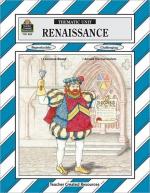|
This section contains 5,707 words (approx. 20 pages at 300 words per page) |

|
Philology.
The maturing of Christian humanism in Northern Europe around 1500 preceded the rise of the Protestant Reformation. Like the followers of the Modern Devotion, many Christian humanists criticized the ritualism of religion at the time, and instead argued for the importance of an internal change of heart among Christians (see also Philosophy: Christian Humanism). The humanists also devoted themselves to the study of the classics and ancient languages. One important innovation of fifteenth-century humanism was its perfecting of philological techniques. Philology, the historical study of languages, taught the humanists that the meanings of words used in ancient documents, particularly in the scriptures, had changed over the centuries. One of the most important demonstrations of fifteenth-century philological technique had come from the Italian humanist philosopher Lorenzo Valla. In 1440, Valla had demonstrated that one of the foundations of papal power, the Donation...
|
This section contains 5,707 words (approx. 20 pages at 300 words per page) |

|




